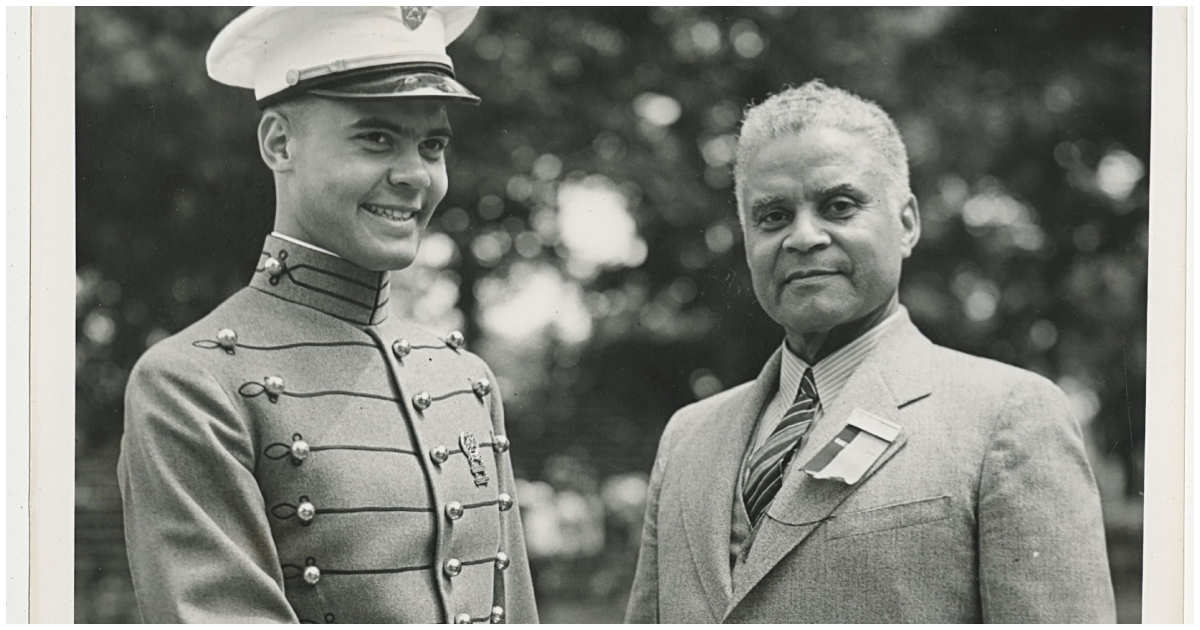Doug Melville, the author of Invisible Generals, is on a personal mission to honor the legacy of his family, particularly America’s first Black generals: Benjamin O. Davis Sr. and his son, Benjamin O. Davis Jr. These trailblazers left an indelible mark on the U.S. military, paving the way for future generations of Black servicemen and women. In an emotional interview with TMJ4’s Andrea Williams, Melville shared the profound impact of their groundbreaking achievements and his role in amplifying their story.
A Legacy of Firsts: Benjamin O. Davis Sr. and Jr.
Benjamin O. Davis Sr. made history in 1940 when he became the first Black general in the U.S. Army after 40 years of service. His role as a military leader went beyond breaking racial barriers; he was a visionary who saw the potential in Black Americans to serve in combat. In a bold move, he advised President Franklin D. Roosevelt to establish a training program for Black pilots, which led to the creation of the Tuskegee Airmen.
Following in his father’s footsteps, Benjamin O. Davis Jr. became the first Black general in the U.S. Air Force. His resilience and determination were evident from his time at West Point, where he faced extreme racial prejudice but excelled academically and militarily. His efforts were instrumental in desegregating the U.S. military, making him a key figure in the civil rights movement within the armed forces.
The Journey of Benjamin O. Davis Jr.: Overcoming Adversity
Benjamin O. Davis Jr.’s path was filled with obstacles, starting with his time at West Point, where he was ostracized as the only Black cadet. Despite being isolated from his peers, Davis Jr. excelled and graduated in 1936, the first Black graduate of the institution in the 20th century. This achievement set the stage for his distinguished military career, where he became an influential leader, particularly in the formation of the Tuskegee Airmen, an all-Black unit that became famous for their bravery in World War II.
His career continued to soar as he became a general and worked under eight different U.S. presidents, advising on military matters and national security. Davis Jr.’s contributions were not limited to the battlefield. Under President Nixon, he helped lay the groundwork for what would later become the Transportation Security Administration (TSA), shaping national policies that continue to affect American citizens today.
The Davis Family’s Lasting Influence in the U.S. Military and Beyond
The Davis family’s influence extended far beyond the military. After his military service, Davis Jr. became a key figure in national security, advising the government on airline security measures. His efforts to push for greater safety led to his involvement in the establishment of the TSA. He also worked as a special assistant to the Secretary of Transportation under President Carter, overseeing the enforcement of the 55-mph speed limit.
Notably, Davis Jr. was promoted to a four-star general in 1998 by President Bill Clinton after years of lobbying. His promotion was a long-awaited recognition of his exceptional service. After his passing in 2002, Davis Jr. was buried at Arlington National Cemetery alongside his father, cementing their place in American history.
Doug Melville’s Commitment to Honoring His Family’s Legacy
Doug Melville’s journey to write Invisible Generals was deeply personal. Growing up, he was unaware of the full extent of his family’s extraordinary achievements. “It was just hard for me to believe that this was in my house all these years, and I had never heard it,” Melville shared during the interview. Now, Melville is on a mission to amplify his family’s contributions to history and ensure that their story is remembered for generations to come.
Through his book, Melville aims to highlight the perseverance, sacrifice, and legacy of two remarkable men who defied the odds and paved the way for future generations of African American leaders.





